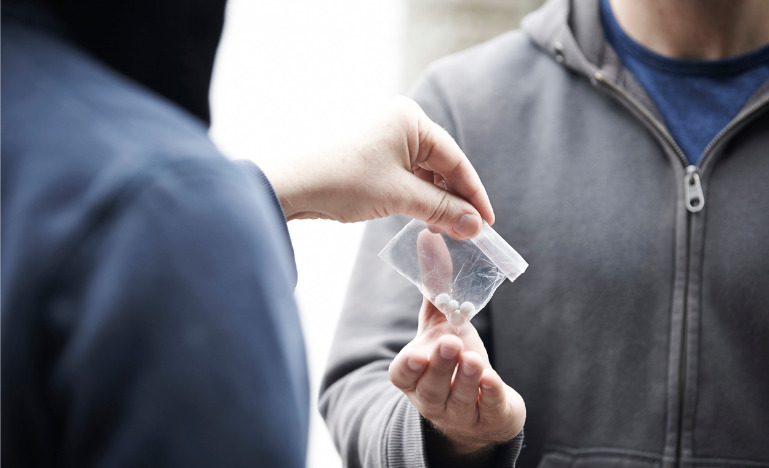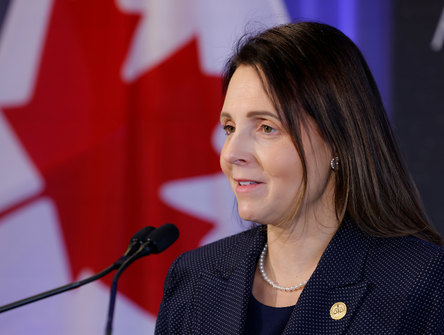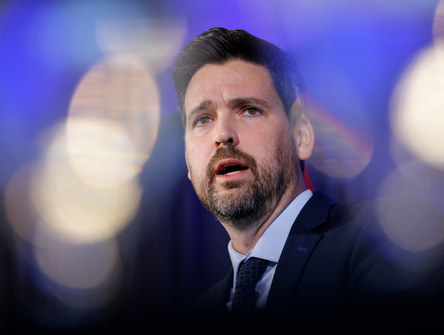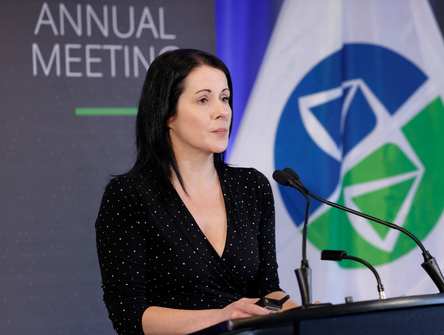Discouraging prosecutions of drug possession
New PPSC directive aims to avoid prosecutions for simple drug possession. But to have their desired effect, they need to be clearer.

Public Safety Minister Bill Blair remarked recently that "we don't want to see people prosecuted for simple possession of drugs."
While Blair rejected the idea of decriminalizing drugs outright, he insisted that we should consider addiction and drug use as "a medical malady that should be dealt with within the health system and not within the criminal justice system."
It's a sentiment in line with the Trudeau government's promise to make justice fairer and less punitive, as it continues to grapple with the raging opioid epidemic.
In mid-August, the Public Prosecution Service of Canada unveiled a new directive, outlining that "criminal prosecution of the possession of a controlled substance...should generally be reserved for the most serious manifestations of the offence."
The directives were heralded as "historic" and a step towards decriminalization.
"An important development," tweeted David Quayat, a federal Crown, when they were was announced. "It codifies what many Crowns were already doing. Critics will say it does not go far enough. But let's applaud a step in the right direction."
Three criminal lawyers who spoke to CBA National, and who spend plenty of time defending clients against Controlled Drug and Substances Act charges, mostly agree. But the devil lies in the details, they say. And in what's missing from the directive.
"Why are we charging in the first place?" says Nabeel Sheiban, who practises in Toronto.
An underfunded court system is already creaking under a backlog of cases, the disruptions caused by COVID-19 and timelines imposed following the R. v. Jordan ruling. That it took all these compounding problems and crises to bring about this directive, Sheiban says, "is a little disappointing," adding: "We need to be a lot more judicious about how we use our resources."
Neha Chugh, the founding partner of Chugh Law in Cornwall, says the directive initially jumped out to her as good news. "My first impression was, 'Great, we're heading in the right direction,'" she told CBA National.
"But then I stopped and thought about it. All of these caveats and limitations — or discretion, I guess — that they put in for Crowns, kind of gives them loopholes," Chugh says. And those conditions allow them "to prosecute if they feel like it," she adds.
Cassandra DeMelo, who practises criminal law in London, Ontario, is pursuing her Ph.D. at Western Law on drug decriminalization. She says the directive appears to be "a formalization of what some — but not all — Crowns had been doing previously."
The directive itself reads that "alternatives to prosecution should be considered unless they are inadequate to address the concerns related to the conduct."
Possible alternatives include drug treatment courts; restorative justice programs, especially those for Indigenous offenders; or a judicial referral hearing, where the offence is a breach of bail conditions.
At the same time, the directive also enumerates all the factors that make a case "serious," which includes instances of drug possession: "committed in the vicinity of places frequented by children or young persons"; where the person is even "responsible for supervision of a person driving"; where it is associated with another Criminal Code or Controlled Drugs and Substances Act violation; or where it conflicts with a "community's efforts to address consumption."
"Who's not near a school?" Chugh asks.
Sheiban calls the directive "overbroad, it provides too much discretion, and it fails to address the core issue" — mental health and addiction.
"Unfortunately, I tend to agree that the characterization of 'serious case' is still too broad," says Cassandra DeMelo. If the PPSC, or the government, wants to address the root causes of drug use and addiction meaningfully, she says, "then these cannot be discretionary considerations any longer."
Sheiban provides an example of just how the directive could be applied in the real world. He represented one client who was pulled over and, without cause, the officer searched his vehicle, finding a small amount of cocaine. He was arrested, charged, and released on bail. When he was pulled over again, the officer found another tiny bag of the drug. He faced another possession charge, as well as a charge for breach of his release conditions.
"Even laying those charges was a joke," Sheiban says. The charges were tossed because there were no grounds for the initial search, but the PPSC directives would appear to treat that case as "serious" — as the drug was found in his car, and because he was charged with possession while in breach of his release conditions, which is a Criminal Code offence.
Chugh calls it a revolving door. "How many times have I had a client who's charged with a theft from Walmart...for items that they wish to sell for drug money?" she says. Her clients end up released on bail, but invariably get re-arrested for using drugs in violation of their bail conditions."
She posits another situation, which she has seen before: Police conduct a home raid where one person is suspected of dealing drugs. But, she says, the person may have three or four roommates. "Everyone gets charged," she says.
This directive leaves the door wide open to continue prosecuting those sorts of cases.
"I think that the same Crowns who were unlikely to withdraw simple possession charges prior to this directive will continue to find reason to define the charge as 'serious,'" DeMelo says. But possession, she contends, is not a serious offence by its very nature. "Of course, drug use has serious consequences for the individual and for our community, but those are problems that cannot be remedied by the criminal justice system."
Sheiban notes that many possession charges are laid on top of other charges at present, with the intention that they never make it to trial. Crowns offer to drop possession if the accused agrees to plead guilty to a lower charge, such as breach of release conditions. "They're offering him the carrot [to drop] the, seemingly, more egregious charge," Sheiban says.
That idea that prosecutors need to be able to stack possession charges on top of other offences is problematic, DeMelo says.
"If other charges are involved, for example possessing drugs while committing a break-and-enter, then focus on the latter. The government will already have recourse through the criminal justice system to prosecute them and hold them responsible, assuming they can prove the elements of that offence," she says. "The need to 'double down' by also prosecuting the drug possession charge becomes punitive and counter-productive.
Focusing on the possession charge also does little to address how other sections of the Act can be used to criminalize drug users.
"Many of my clients...will bulk buy, and they'll buy their supply for the week or month, and they'll get picked up on a P-for-P [possession for the purpose of trafficking or distribution]," Chugh notes. Often, the accused in those cases plead down to simple possession.
In recent years, the number of charges for drug possession has declined steadily, in large part driven by the legalization of marijuana. According to Statistics Canada, police charged more than 17,000 people with drug possession in 2018, mainly for heroin, methamphetamines and opioids.
Some 4,300 cases ended in guilty verdicts where drug possession was the most serious charge before the court. About 700 of those cases resulted in jail time.
DeMelo says she's seen police exercise more discretion around drug possession and lay fewer charges. But the trend hasn't necessarily carried over to the Crown prosecutors. She has found them "to be about as vigorous as they had been before."
Prosecutions around fentanyl, in particular, have ramped up. Chugh has seen cases where individual users have gotten federal jail time for carrying just a few patches, or for sharing with friends. Considering the extent of the overdose and poisoning epidemic, she says, those sorts of lengthy jail sentences are untenable. "It's a complete contradiction. It's working at cross-purposes," she says.
In recent years, the Trudeau government has put new money into drug treatment courts and other alternatives. Those off-ramps are supposed to divert users from the criminal justice system. But, as Chugh notes, access isn't equal across the country.
"We don't even have a rehab [in Cornwall]," she notes. There's no drug treatment court, either. Those who need detox programs need to drive the hour-and-a-half to Ottawa."
Even in Toronto, Sheiban notes, getting referred to the specialized courts comes down to the luck of the draw. "One of the things that the PPSC is not going to tell you is that, if the judge doesn't take the lead, it's not going to happen," he says.
Even if the new directive leads to fewer prosecutions, police and prosecutors will continue to pursue charges for simple drug possession, which will continue to throw users and those struggling with addiction into the criminal justice system.
Ultimately, DeMelo says, the directive could have been more straight-forward.
"Our response to these charges needs to be a clear and unequivocal directive not to prosecute them — period," DeMelo says.
As long as the reforms continue to be piecemeal, she says, "we are hamsters on a wheel trying to combat this issue using the criminal justice system."


